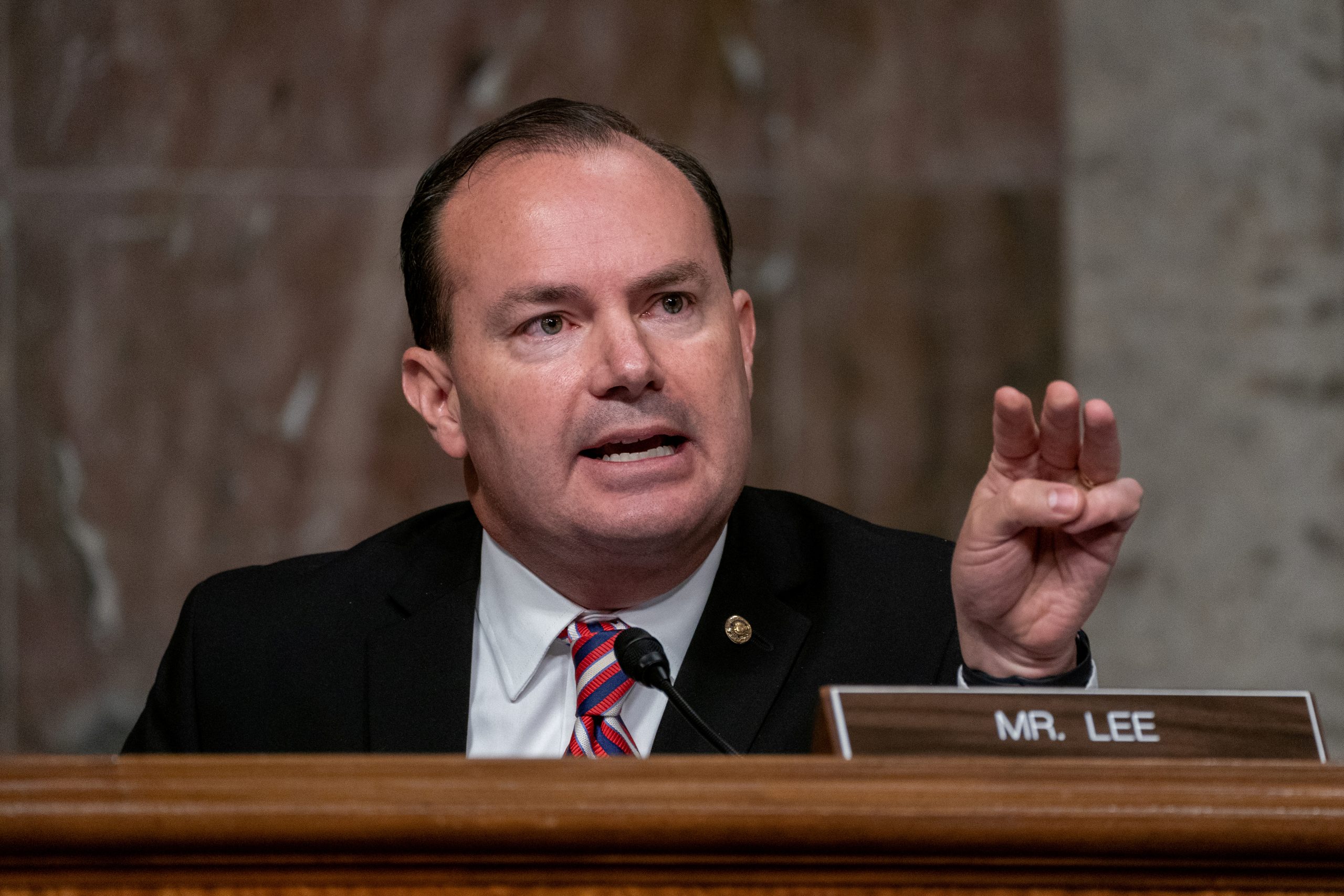A Washington power struggle is under way over how much freedom presidents should have to make national security decisions that commit U.S. forces or arm nations with American-made weapons.
The so-called National Security Powers Act represents a rare show of bipartisanship in the Senate, where it has attracted the backing of Republican Sen. Mike Lee of Utah, an outspoken conservative, Democratic Sen. Chris Murphy of Connecticut, and Sen. Bernie Sanders of Vermont, an independent who caucuses with the Democrats.
The bill says that the long, slow evolution of greater power in the White House at the expense of Congress needs to be reversed, according to Politico.
“Before it’s too late, Congress needs to reclaim its rightful role as co-equal branch on matters of war and national security,” Murphy said, Politico reported.
While the senators’ political differences make them an unlikely team in many matters, they joined forces in 2018 on legislation to end military support for a coalition led by Saudi Arabia to assist the government of Yemen against a rebellion backed by Iran, as The Associated Press reported at the time.
Murphy said the legislation is not an innovation, but a return to the vision of the country’s Founding Fathers.
“The founders envisioned a balance of power between the executive and legislative branches of government on national security matters,” he said, according to ABC.
“But over time, Congress has acquiesced to the growing, often unchecked power of the executive to determine the outline of America’s footprint in the world. More than ever before, presidents are sending men and women into battle without public debate, and making major policy decisions, like massive arms sales, without congressional input.”
“Congress should reform a system that gives us endless wars, unlimited arms sales, and ill-advised trade wars that leave America weaker in the world.” @ChrisMurphyCT on the National Security Powers Act being introduced today. https://t.co/4dxwFb5p9B
— Matt Duss (@mattduss) July 20, 2021
The proposal would change the dynamics of arms sales, forcing a president to get approval from Congress rather than the current method, in which the only way Congress can block an arms deal is by achieving a veto-proof majority, according to a news release.
For example, as Politico noted, the effort by the three senators to cut off support for the Saudi-led coalition in Yemen was unable to block the arms sales.
Congress voiced opposition to arms sales that were part of the Trump administration’s support for Saudi Arabia, but were not able to block the sales.
The bill would throw out the 1973 War Powers Act, which allows a president 60 days to conduct military operations without the blessing of Congress. That time frame would shrink to 20 days under the new bill.
The new proposal would also require that any national emergency declared by a president get the approval of Congress within 30 days.
“This is a re-taking, not a wrestling away, of powers” from the White House, Politico quoted what it said was a person familiar with the legislation.
Lee said that, regardless of political party, presidents have been accumulating more power than is good for the nation to allow them to keep.
“Presidents of both parties have usurped Congress’s prerogative to determine if, when, and how we go to war. Now America’s global standing, treasure, and brave service members are being lost in conflicts the people’s legislators never debated,” Lee said, according to ABC.
“In areas where the Constitution grants broad powers to Congress, Congress is ignored. The National Security Powers Act will change that and return these checks and balances to our government.”
Last month, the House voted to repeal the authorization for the use of military force that led to the U.S. involvement in Iraq. The Senate is likely to follow suit, according to Politico.
“I believe that we have become far too comfortable with the United States engaging in military interventions all over the world, and the time is long overdue for Congress to reassert its constitutional role in matters of war and peace,” Sanders said, according to Axios.
This article appeared originally on The Western Journal.
























 Continue with Google
Continue with Google